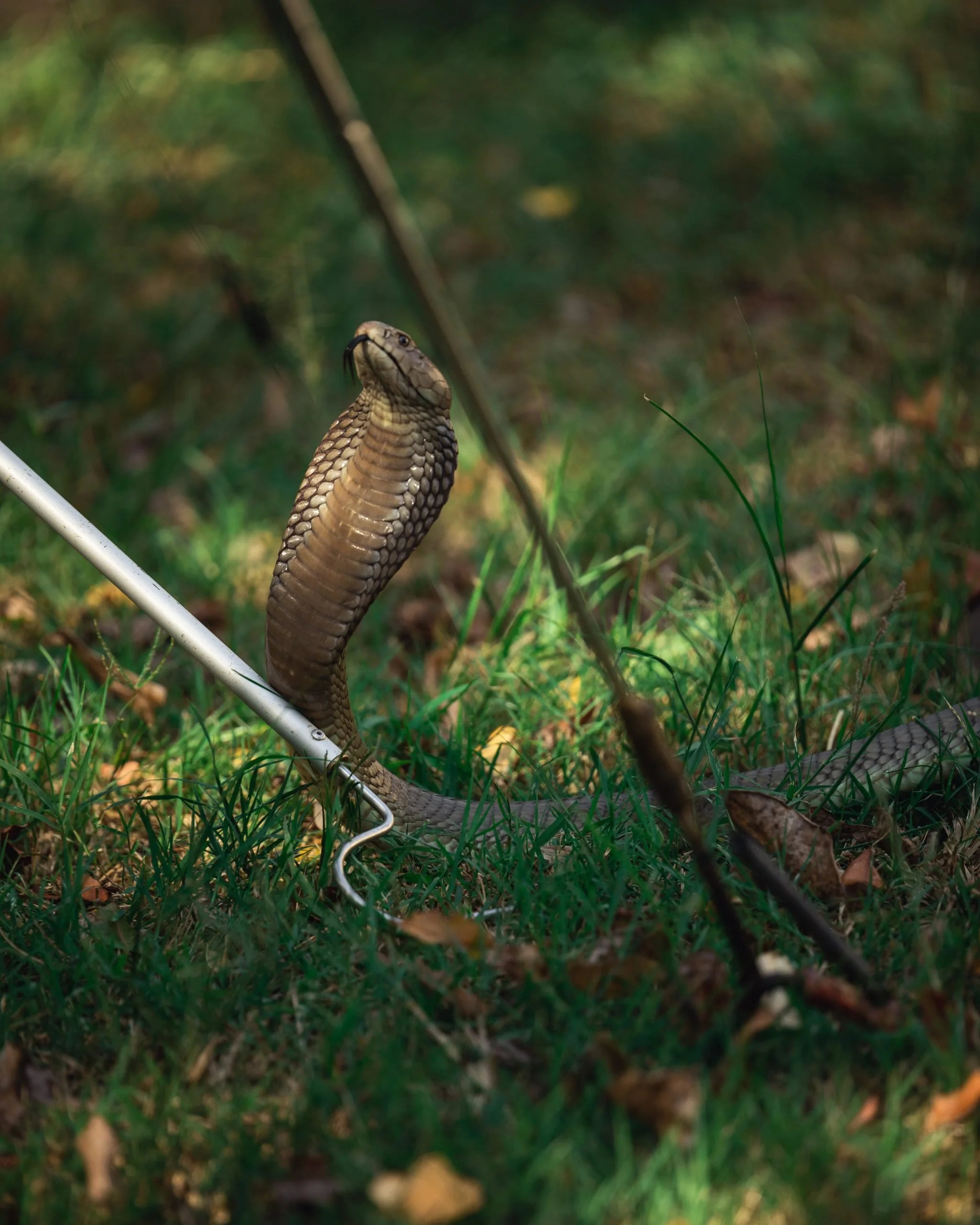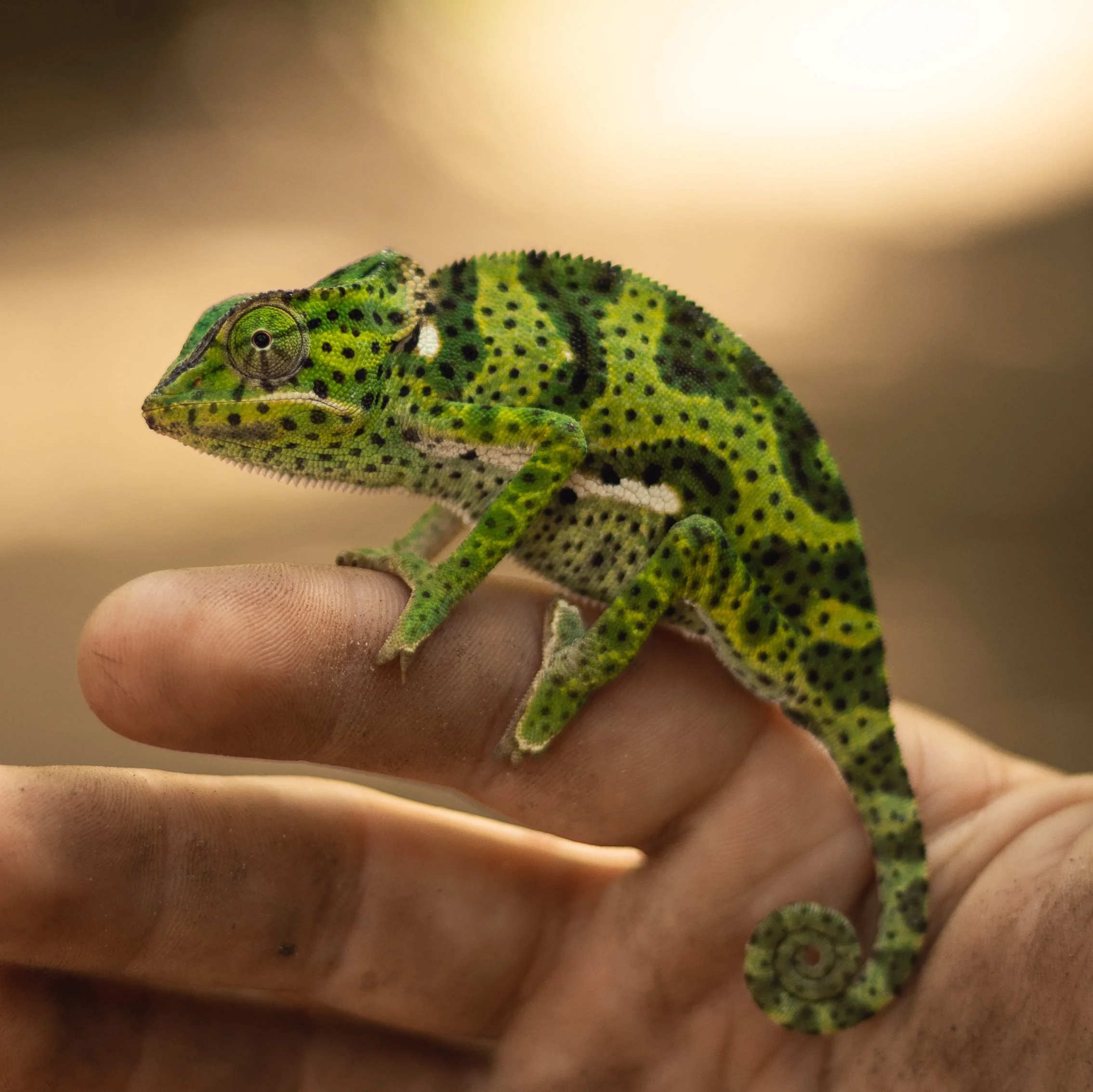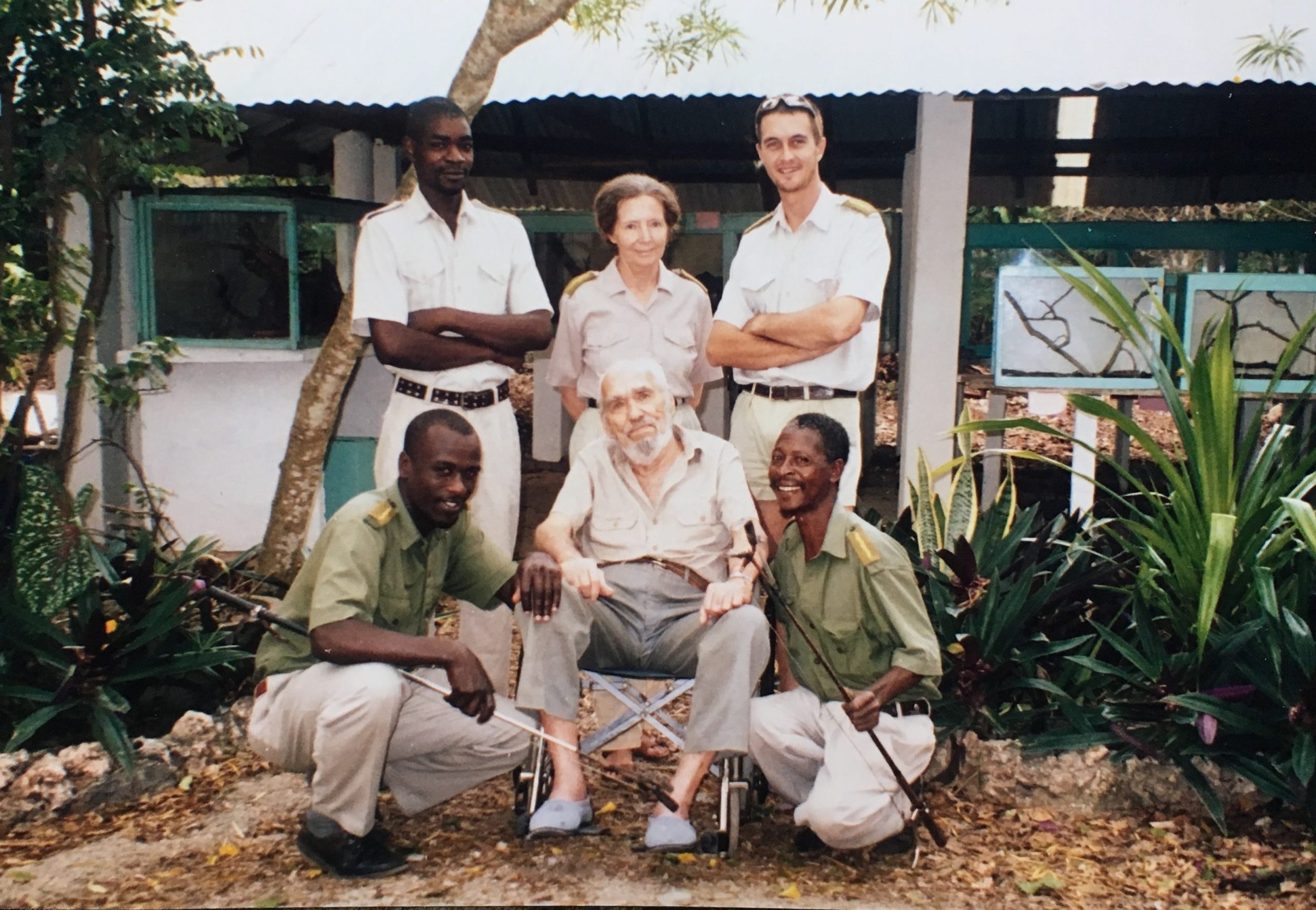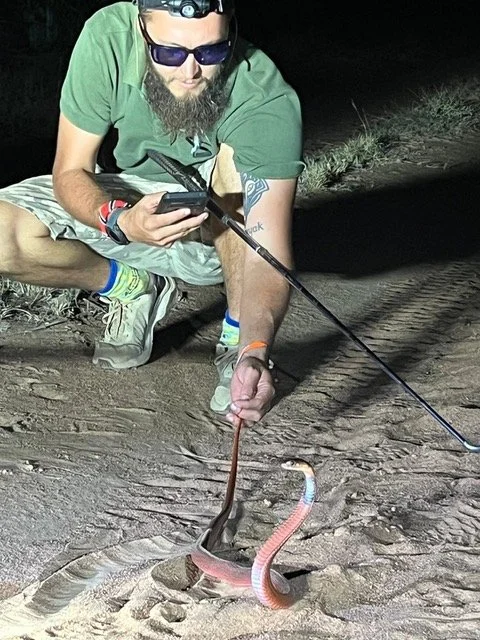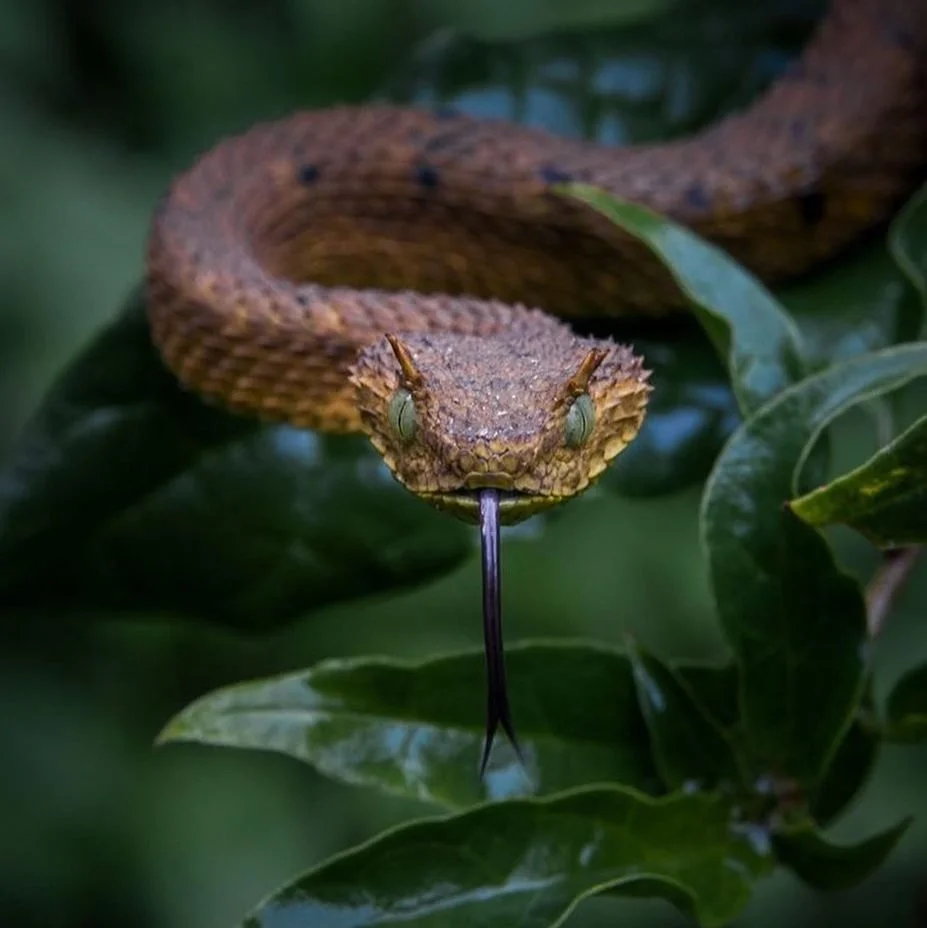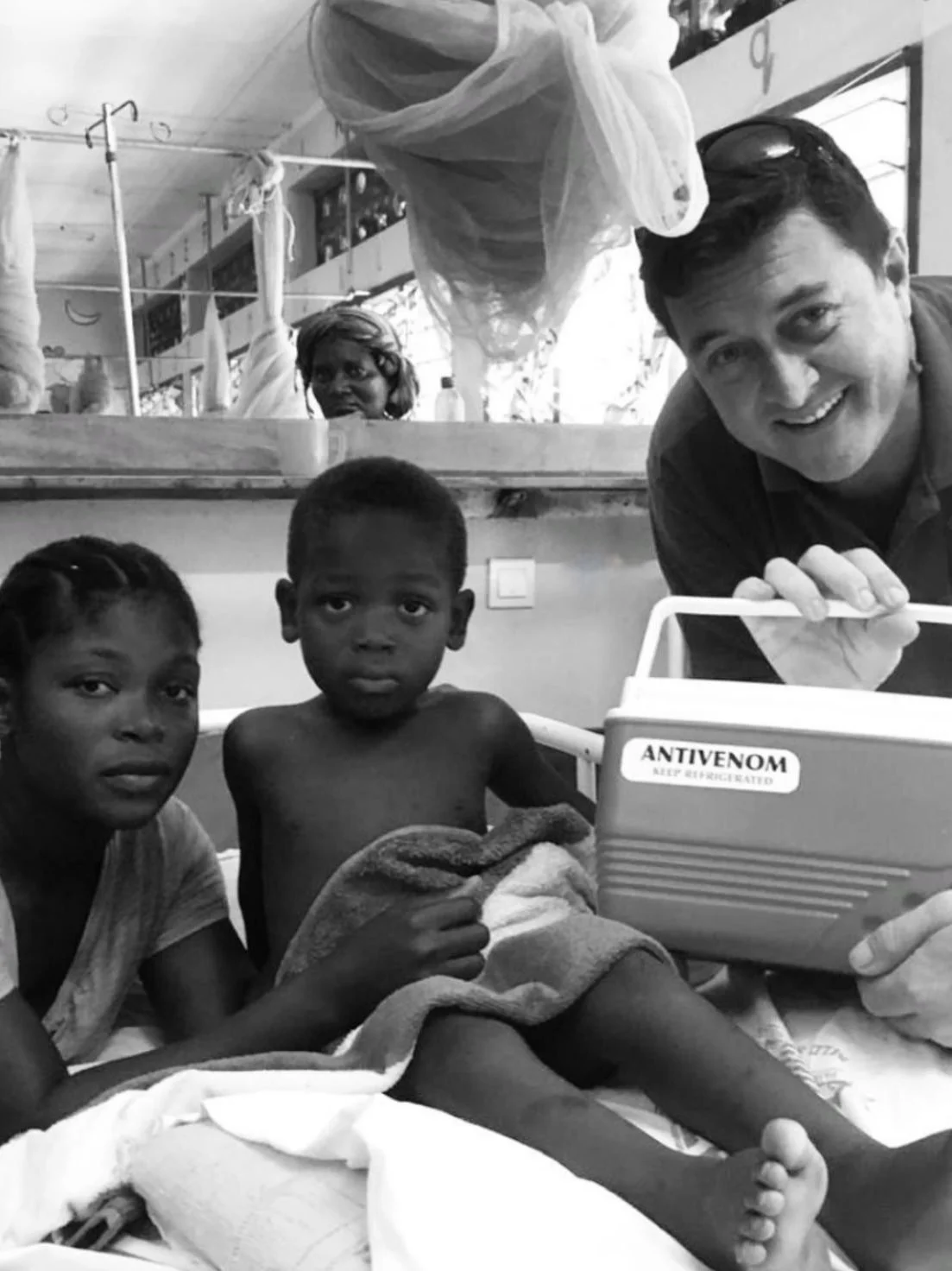
Watamu Snake Farm
Open Today 10:00am – 4:30pm +254 707 577748
No Online Booking Required!
Adults - 1500/=
Kids - 500/=
Located in the heart of Watamu, our snake farm is one of the area’s must-visit attractions. Home to an incredible variety of East African snakes, including the Black Mamba and Ashe’s Spitting Cobra, we offer an up-close look at these fascinating creatures.
What to expect:
A full guided tour by one of our amazing team
Live snake milking every day at 11am.
Some of the rarest and most fascinating snakes in the world!
Live snake handling every day at 3pm.
What’s on at Watamu Snake Farm?
About Us
The Watamu Snake Farm, established in 1980 by James Ashe and his wife Sanda, began as a reptile research and education center. As James's health declined in 2002, his protégé Royjan Taylor took over, aiming to establish Kenya's first snakebite center of excellence. Tragically, Royjan passed away in 2019, and the Taylor Ashe Antivenom Foundation (TAAF) was established in their memory to continue their work.
TAAF has since partnered with global organizations to develop a new Pan-African polyvalent antivenom, addressing the critical need across Africa. With significant donations, facilities at the farm were upgraded, including a new milking suite and laboratory, positioning it as a world-class center focused on snakebite education, prevention, and research, continuing the legacy of its founders.
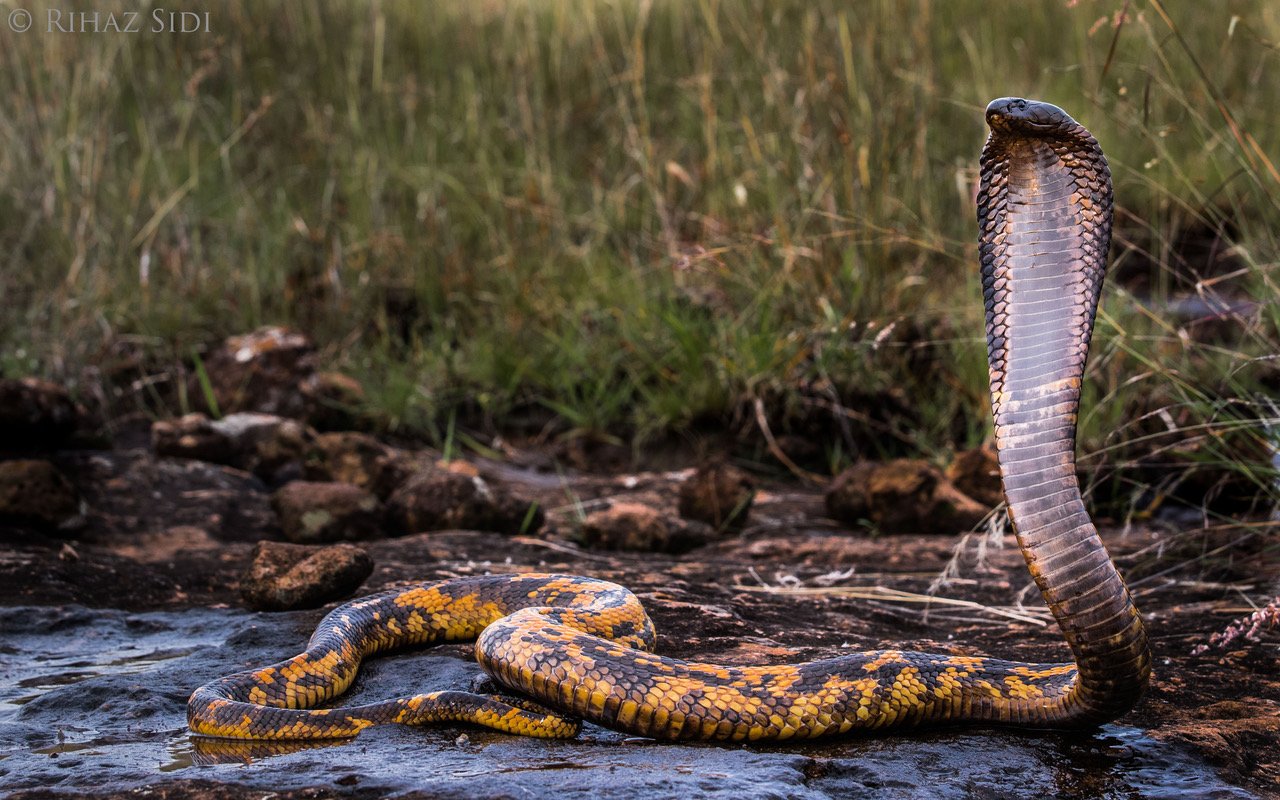
Support our mission
-
Snakebite significantly harms Kenya's poorest, contributing to roughly 138,000 global deaths and over 500,000 disabilities each year. It represents 44.8% of human-animal conflict cases in Kenya.
-
The cost of treating snakebite envenoming is substantial, often devastating community finances. Survivors face long-term challenges including unemployment, social rejection, and stigma due to disabilities and disfigurement.
-
Taylor Ashe Antivenom Foundation supports the World Health Organisation’s aim to halve snakebite-related deaths and disabilities by 2030. This initiative focuses on improving community engagement and empowerment to tackle this neglected tropical disease.
Explore more
Our partners








